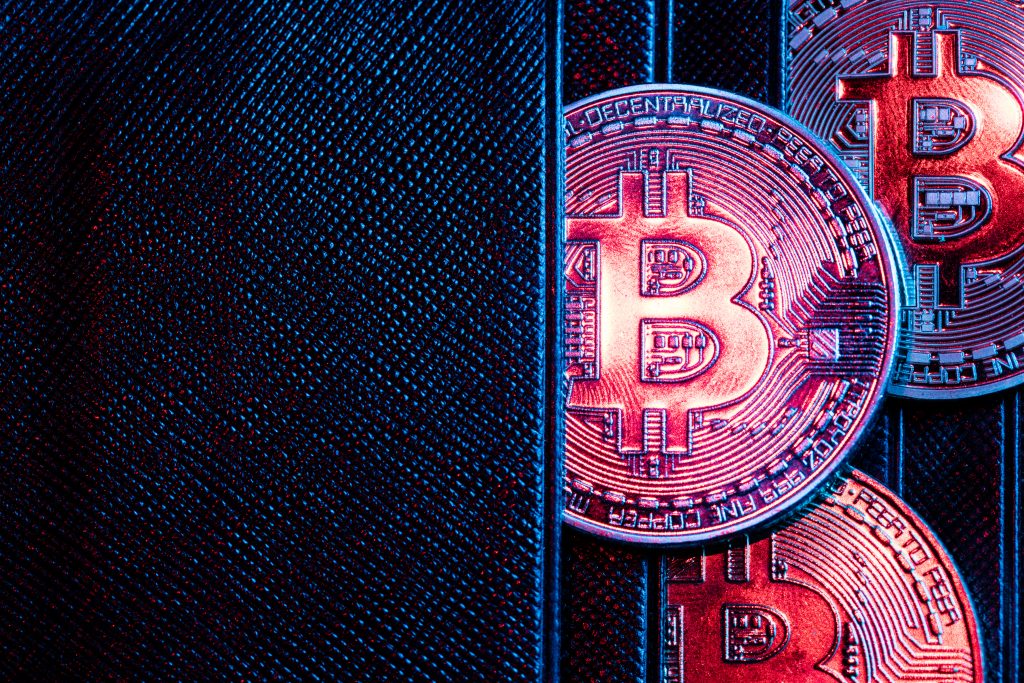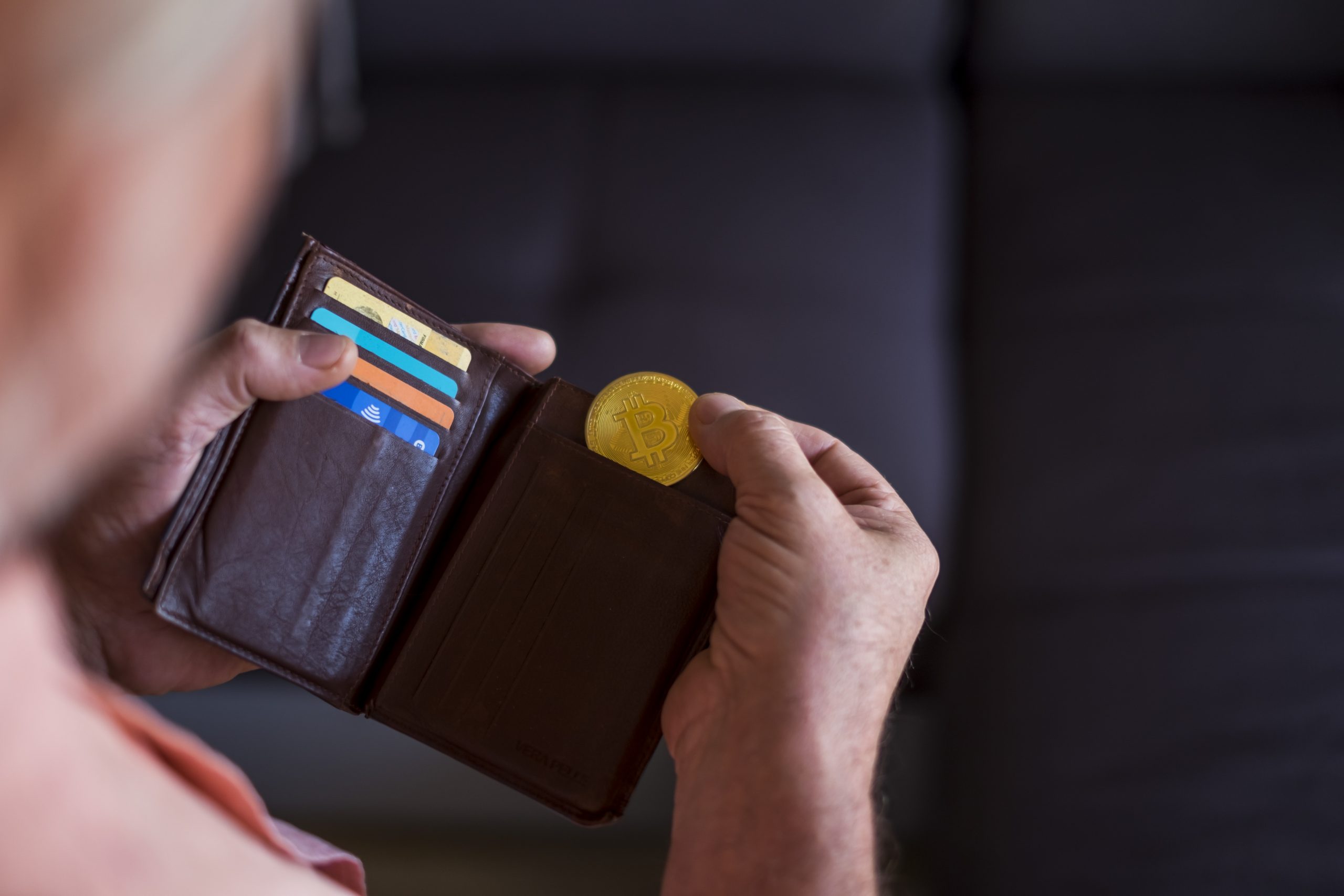Exposing The Freewallet Scam: Protecting Your Cryptocurrency Assets

When it comes to cryptocurrencies, safety is very important. As digital currencies become more popular, con artists are coming up with new ways to take advantage of people who don’t know what’s going on. The Freewallet scam is one of these that has gotten a lot of press.
Wallets for cryptocurrencies are a safe way to store and handle digital assets. However, not every wallet is the same. Reports have come out in recent years about the Freewallet scam, in which users lost their hard-earned cryptocurrency because of dishonest business practices.
If you want to trade in cryptocurrencies, you need to be aware of the risks and scams that could happen in the market. The Freewallet scam is a good warning to keep your cryptocurrency safe from bad people. This piece will go into more depth about the Freewallet scam, including what it is, how it works, and most importantly, how you can keep your digital assets safe from being stolen by scammers.
Understanding Crypto Assets
Crypto assets, which are also called “digital assets,” are digital tokens of value that use cryptography to protect deals and limit the production of new units. Like traditional money, these assets only live in computer form and can’t be touched. People are more aware of crypto assets lately, thanks to the popularity of cryptocurrencies like Bitcoin and Ethereum. Crypto assets can be different digital currencies or coins released on blockchain platforms. Crypto assets are becoming more popular as an investment because they can give you big returns and are not tied to standard banking systems. That being said, people should know about the risks and difficulties of these products before they buy or take part in the crypto market.
What are Cryptocurrencies?
Cryptocurrencies are digital or virtual currencies that use encryption to make deals safe, keep track of how many new units are made, and make sure that assets are transferred correctly. Cryptocurrencies are not controlled by a single entity. Instead, they use a technology called blockchain, which is a spread ledger that keeps track of all activities on many computers.
One of the best things about cryptocurrency is that every exchange is recorded for everyone to see on the blockchain. This gives the system a high amount of protection and lets people check that it is working properly.
The idea of independent digital currencies was first put forward by Bitcoin, the first and most well-known cryptocurrency. On the other hand, Ethereum took this idea further by letting people make smart contracts and independent apps on its blockchain. Ripple (XRP) wants to make it easier to send money across borders by speeding up and lowering the cost of transfers.
Cryptocurrencies have become very popular in the digital market. Bitcoin is the most well-known and widely accepted cryptocurrency. They have many benefits, such as lower transaction fees, faster and safer money transfers, and more people having access to money.
As the crypto market changes, it’s important for people to know about the different kinds of cryptocurrencies and what they mean. There are a lot of different cryptocurrencies out there. Bitcoin, Ethereum, and XRP are just a few examples. Each has its own market position and importance in the growing digital world.
Types of Crypto Assets
In the digital market, crypto assets come in many forms, such as digital currencies and coins. Cryptocurrencies, like Bitcoin and Ethereum, are independent kinds of money that use blockchain technology to work. They can be used as money to buy things and are accepted in many fields.
On the other hand, tokens are goods or services that can be traded on a certain blockchain platform. They can show that you own something, are involved in a project, or have access to certain services. Tokens like utility tokens, security tokens, and stablecoins are examples.
They are called “hot wallets” and “cold wallets,” and they are used to store blockchain assets. Hot wallets are linked to the internet and make it easy to get to your money, so they’re good for frequent transfers. They are more likely to be hacked, though, and stolen.
Cold wallets, on the other hand, are offline devices or ways that safely store crypto assets. Hardware wallets (which are real devices made just for keeping coins) and paper wallets (which are secret keys written on a piece of paper) are two examples. Since cold wallets aren’t directly linked to the internet, they offer an extra level of security.
It is important to keep in mind that Know Your Customer (KYC) checks are needed for some crypto-to-crypto trades. KYC verification makes sure that people are who they say they are and that their actions are being watched to stop illegal things like money laundering and funding for terrorism. As part of this identification process, you will need to provide personal information and proof in order to meet legal standards.
Digital Wallets and Exchanges
Digital wallets are very important in the world of cryptocurrencies because they let people store their payment information safely and use their phones to make deals. These wallets are made to store and handle digital currencies safely, so anyone working in the crypto area needs to have one.
There are different kinds of digital wallets, and each one does something different. Cash App, Apple Pay, Google Wallet, Samsung Pay, and PayPal are all well-known choices. Individuals who use these wallets can easily complete deals from their phones, removing the need to keep cash or credit cards.
People use digital wallets to store and manage their digital currencies when they trade them on cryptocurrency markets. When someone signs up for an account on a cryptocurrency exchange, they are usually given a digital wallet to go with it. They can store their digital assets safely in this wallet, which also lets them make trades in the exchange.
PayPal, which just recently added a digital wallet to its website to support cryptocurrencies, is a well-known example of a digital wallet. This connection lets PayPal users buy, sell, and hold big cryptocurrencies directly in their PayPal accounts. This makes digital currencies much easier to get and use.
Safety Tips for Protecting Your Crypto Assets
In the constantly changing digital world, it’s important to keep your crypto investments safe. Here are some safety tips to keep your crypto safe and stop people from getting in without your permission or doing scams.
1. Protect your seed phrase. Your digital wallet’s master key is the seed phrase, which is a string of words. Keep it offline and in a safe place, out of reach of hackers and nosy people.
2. Watch out for phishing attempts. Cybercriminals often use sneaky methods to get people to give up private data. Do not click on links that seem sketchy in emails or texts, and always make sure that a website is real before entering your login information.
3. Make sure your security is strong by installing strong antivirus software and keeping your devices up to date. This will keep malware and viruses from getting into your crypto assets.
4. Turn on two-factor authentication (2FA). This extra layer of security requires you to provide two forms of proof, like a password and a unique code sent to your phone. This makes sure that only people who are allowed to can access your accounts.
5. Choose exchanges and wallets that you can trust. Choose coin exchanges and wallets that have a history of keeping users safe and earning their trust. Read reviews and look into their security steps to make an educated choice.
6. Keep an eye on your accounts: Be alert and look over your purchases and account behavior on a daily basis. Tell your exchange or wallet provider right away about any behavior that seems fishy.
If you follow these safety tips, you can keep your crypto assets safe from possible risks and rest easy knowing that your investments are safe. Always put security first, and never skimp on keeping your digital wealth safe.
How Does the Freewallet Scam Work?
The Freewallet scam is a trick meant to take advantage of people who use cryptocurrencies and steal their digital assets. People who use mobile wallets or depend on security services are usually the ones this scam targets. Scammers get people to give up their private information or move their cryptocurrency to a fake account by pretending to be a real wallet service. To protect your coin funds and have a safe online experience, you need to know how the Freewallet is scam works. If you know the tricks crooks use, you can protect your money and avoid falling for this kind of fraud.
Suspicious Account Activity and Unauthorized Transactions
In the world of cryptocurrency, people are very worried about strange account behavior and transfers that aren’t supposed to happen. People who own crypto assets may face big risks and problems as a result of these actions, such as losing money or having their assets stolen. People need to be aware of the different kinds of strange behavior that can happen and take the right steps to keep their belongings safe.
Cryptocurrency may be moved from a user’s account without their knowledge or permission during an unauthorized exchange. This can happen when bad people get their hands on secret keys or login information through hacking or phishing attacks. Other actions that seem fishy are trying to log in at strange times, changing your transaction habits quickly, and sending money to wallets you don’t know about.
There are big risks involved in this kind of behavior. People who own crypto assets may lose a lot of their digital money because these trades can’t be undone. Accounts that have been hacked can also be used to steal identities, get personal information out, and get into other accounts without permission.
It is important to follow best practices to find and stop these illegal activities. This means using safe and trustworthy bitcoin platforms or wallets, keeping an eye on your account behavior on a regular basis, and turning on two-factor authentication. Also, make sure your gadgets and apps are always up to date, don’t click on strange links or open unknown files, and change your passwords and secret keys often.
Inconsistencies with Transaction Amounts and Time Frame
When using the Freewallet app, users may find that transaction amounts and times are not always the same. There are big problems that these differences could cause for people’s digital investments.
The difference between the amount expected to be received and the amount actually received is a regular problem. People may start a deal expecting to get a certain amount, but when it’s over, they get something different. This could be annoying, and it could lead to sudden cash loses.
In addition to differences in the amounts of transactions, users may also experience delays in the time it takes to process transactions. Sometimes, transactions that are supposed to be finished by a certain date take longer than planned. This can be a problem, especially when time is of the essence and deals need to be done quickly and easily.
Users’ bitcoin investments are at risk because of these mistakes. The differences in transaction numbers can cause money to be lost or the value of the stock as a whole to be wrongly calculated. Transaction handling delays can make it harder for users to take advantage of chances that end quickly or meet their financial responsibilities on time.
People who use the Freewallet site need to be careful and aware of these risks in order to lower them. They should check the details of a deal twice before starting it, and they should keep a close eye on their account behavior to see if anything seems off. If they have any problems, they should contact the platform’s support team for help and more information.
Misleading Promotional Offers and Fake Reviews
Concerning problems have been linked to the Freewallet scam, such as misleading advertising and fake reviews. Scammers often use these sneaky tricks to trick users who don’t know what’s going on and gain their trust for bad reasons.
Fraudsters often use false advertising to get people to fall for their tricks. These ads tell people that using the Freewallet site will get them special perks or awards, which makes them want to sign up or make a transaction. But these deals might not be what they seem to be, leading people to make choices based on false assumptions.
It’s also possible to be scammed with fake reviews. Scammers will make fake reviews and recommendations that say great things about the site and its services. The point of these reviews is to trick people into thinking that the site is trustworthy. They are, however, totally made up and should not be trusted.
By showing fake reviews and advertising false deals, the platform hopes to earn users’ trust and get them to spend their cryptocurrency assets there. Scammers trick people into thinking that Freewallet is a safe and real platform by giving them false information and promises that are too good to be true.
Users should be careful and skeptical when they see these kinds of special deals and reviews in order to stay safe. Before making a choice, they should look into the information on their own and make sure it is correct. You can avoid falling for these tricks by only trusting reliable sources and asking for advice from people you know and trust in the crypto community.
Lack of Support for Security Features, like Two-Factor Authentication (2FA)
One big problem with Freewallet is that it doesn’t work with some very important security features, like Two-Factor Authentication (2FA). With 2FA, users’ accounts are safer because they need to prove their identity with a second method, usually a phone or email, in addition to their login and password.
Without 2FA, user accounts can be accessed by people who shouldn’t be able to, which could lead to security breaches. Hackers might be able to quickly get into user accounts and steal valuable coin assets if this extra layer of security isn’t in place.
Several risks can happen if you don’t have strong security steps in place. For instance, an attacker might be able to use hacking to get people to give up their login information, which can then be used to get into their accounts without their permission.
Two-factor authentication (2FA) must become a common security tool to stop these kinds of holes. If you make users prove who they are with a second factor, hackers won’t be able to get into their accounts even if cybercriminals get their hands on their login information.
Overall, Freewallet’s lack of support for security features like two-factor authentication (2FA) puts users at risk and opens them up to possible flaws. Cryptocurrency users must pick sites that put strong security steps first to keep their valuable digital assets safe.
The Dangers of Using Freewallet
In recent years, cryptocurrency has become very famous, and many people now choose to trade in digital assets instead of traditional stocks. As more people get into the crypto market, it becomes more important than ever to store these funds safely. Even though there are many wallets out there, users need to be aware of the risks that come with using some platforms, like Freewallet.
Loss of Funds through Unauthorized Transfers to “Anonymous” Accounts
Losing money through illegal payments to “anonymous” accounts comes with a lot of risks and problems. Transferring money to private accounts makes it hard to track down and get back the money because the accounts can’t be linked to a person.
When victims try to get their money back, they run into a lot of problems. First, there is a lack of openness because the account users are private, which makes it hard to find and identify them. Additionally, because cryptocurrencies are private and not controlled, it is hard for law enforcement to help get the money back. It’s also easy to change the money from one cryptocurrency or traditional currency to another once it’s been sent to a private account, which makes the process even more difficult.
It is very important to take precautions so that you don’t lose money through illegal payments to private accounts. One important step is to store your crypto assets in a wallet that you can trust and that is safe. Another level of protection is provided by cold wallets, like hardware wallets, which keep your secret keys offline and out of reach of hackers.
Also, you should be very careful when making deals and only use swaps or sites that you know are trustworthy and have strong security measures in place. It is also a good idea to use multi-factor authentication, change your passwords often, and keep an eye on your accounts for any strange behavior.
Risk of Having Personal Information Shared Without Consent
Users’ safety is at great risk with the Freewallet scam because personal information could be shared without their permission. People who fall for this scam could lose their privacy in a number of ways, which could lead to serious problems like identity theft and specific phishing attacks.
When people fall for the Freewallet scam without realizing it, they often give their personal information to bad people who can then use it for illegal things. Names, addresses, phone numbers, and even social security numbers may be in this list. If this information gets into the wrong hands, users could be victims of identity theft, which is when thieves use their names to commit scams or other crimes. Making people feel like victims in this way can have long-lasting emotional and financial effects.
In addition, bad people can use the personal information they get from the Freewallet scam to plan specific hacking attacks. In these types of scams, fake emails or messages are sent to users to trick them into giving up more private information, like login passwords or bank information. If you fall for these hacking scams, you could lose even more money or be exploited in other ways.
It is very important to be careful when giving out personal information online so that it doesn’t get shared without your permission. Only give your information to sites or services that you know and trust. You might also want to use two-factor login and keep an eye on your online and banking accounts on a regular basis for any strange behavior.
In the digital world we live in now, data breaches can have very bad effects, so keeping personal information safe is very important. Users can reduce the risks of the Freewallet scam and other privacy breaches by being careful and keeping their personal information safe. This will give them peace of mind.

Conclusion
People should be aware of the risks that come with using cryptocurrency, which is a new kind of digital cash. If you know how the Freewallet scam works and do full background checks on all crypto companies, you can keep your crypto funds safe from bad people in the area. To keep your cryptocurrency safe, you should use a reputable exchange and wallet, learn basic security tips, and store your cryptocurrency in cold storage. You can protect your coin investments in the crypto world if you take the right steps.







